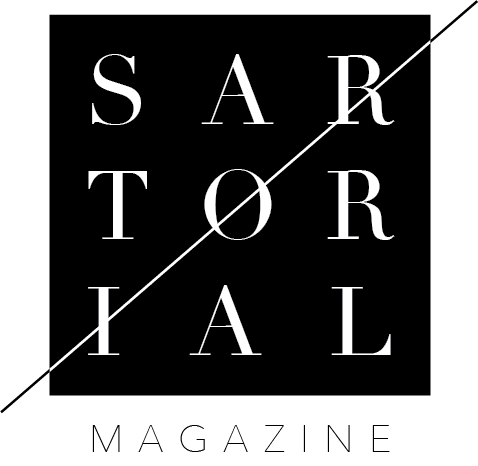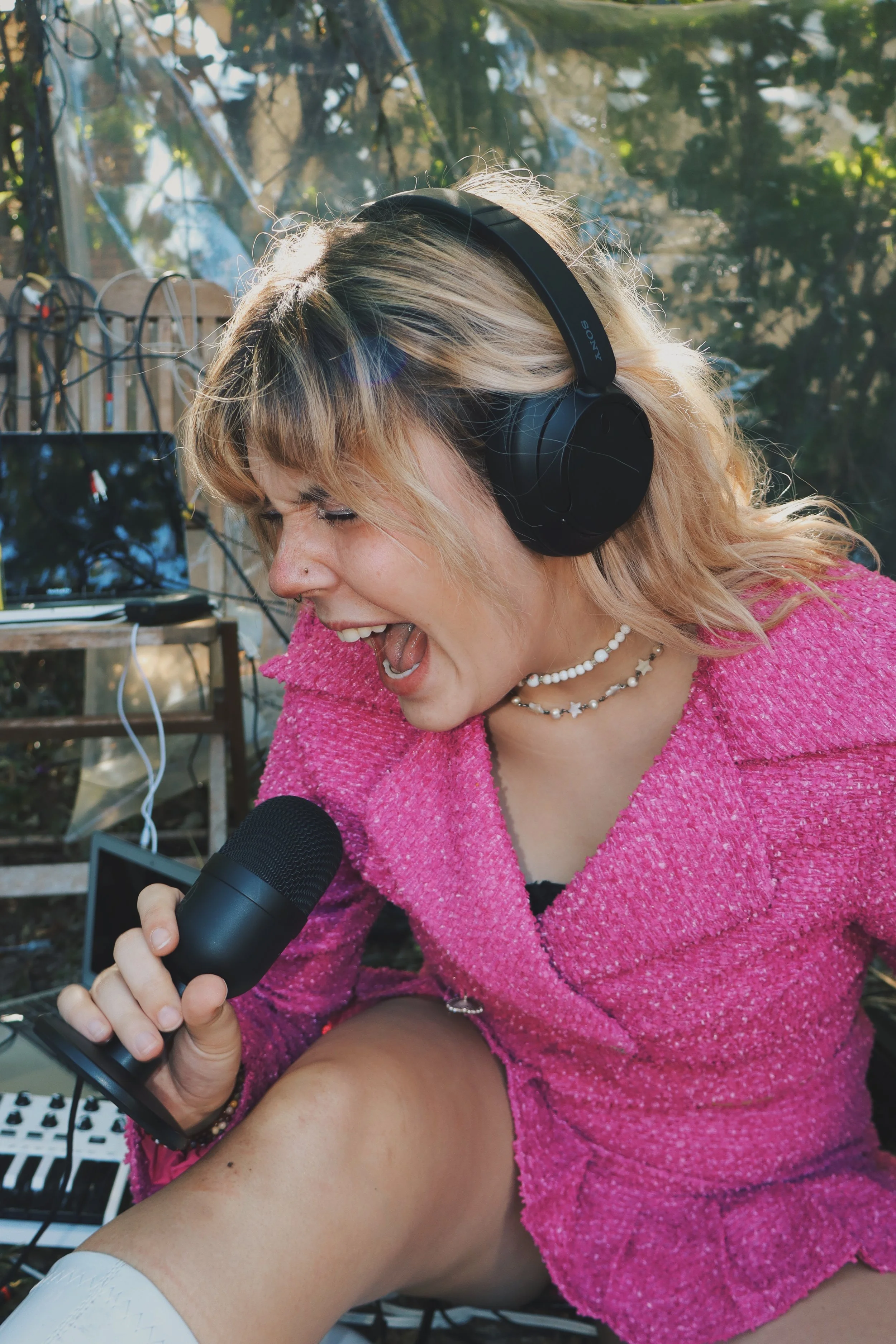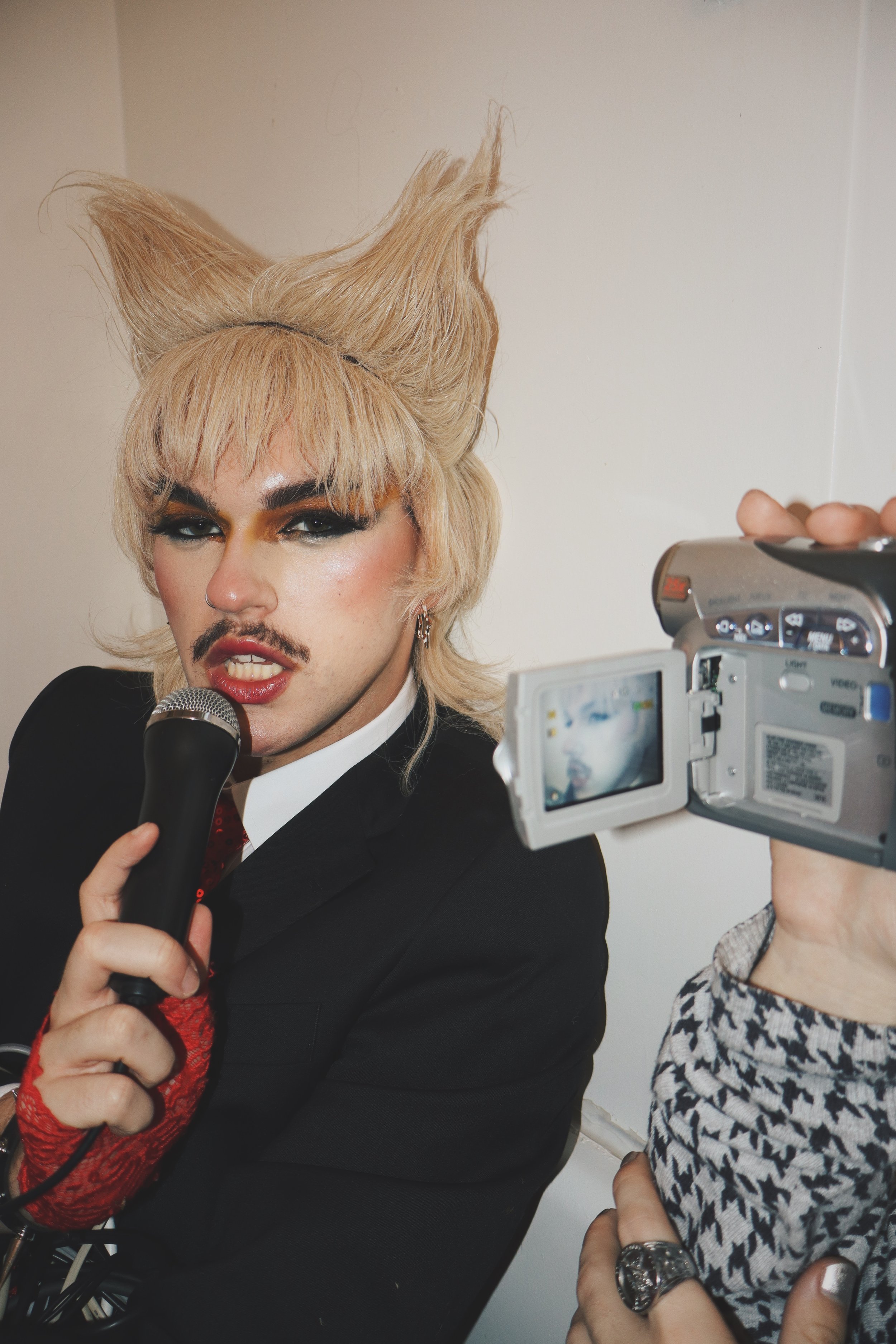The Cultural Impact of Hyperpop in a Diverse Media Pool
Written by Anna Berkheimer & Marko Maturino
Photography by Mavis Parks
Modeled by Kaitlyn Patton, Hadley Berry, Autumn Adams, Rishita Nannapaneni, & Cole Vest
A Brat Summer is all about embracing messiness, passion, and unapologetic authenticity. This concept, inspired by Charli XCX and her album "Brat," encourages living life on your terms with confidence and flair. The tracks on the album exemplify her evolution into hyperpop and exploration of self-discovery. However, “Brat” is an introduction to the massive hyperpop space. This genre dates back to the early 2010s and is characterized by its experimental production and artists. The music is coined by its unconventional beats, auto-tuned vocals, and excessive dissertation. Some of its inventors include (though are not limited to) A. G. Cook, SOPHIE, Charli, Dorian Electra, and 100 Gecs.
A. G. Cook
Hyperpop’s origin story dates back to PC Music, a music label that started in 2013. Founded by Cook, PC Music helped push boundaries in pop music to a mixed reception at the time. The sound was divisive and groundbreaking. The genre was called “bubblegum bass” and drew influences from pop, club, electronic music, the internet, and LGBTQ+ culture. Tracks released at the time featured a variety of sounds many would associate with contemporary hyperpop. For example, “Hey QT,” released under a music project named “QT” and produced by Cook and SOPHIE, featured pitched-up vocals, synths, and an off-kilter snare.
Charli XCX
While not having the largest audience, PC Music drew a cult following. A notable fan of this sound was Charli. At the time, Charli had just released her second studio album “Sucker,” which had more of a rock sound and featured notable singles like “Boom Clap” and “Break the Rules.” “Boom Clap” was a huge commercial success, peaking at No.8 on the US Billboard Hot 100. In March 2015, she teased a collaboration with SOPHIE by tweeting a snippet with the caption “XCX X @SOPHIEMSMSMSM FUTURE/SOON.” In February 2016, Charli released the EP “Vroom Vroom,” which featured the production of SOPHIE, the writing of Cook, and a vocal feature from PC Music artist Hannah Diamond. Having a popular artist like Charli co-opt this sound was a big deal. “Vroom Vroom” had a mixed reception at the time. Most notably, Pitchfork rated the EP a 4.5 out of 10. In 2021, they rescored the album, rating it a 7.8. Pitchfork said, “At the time, many critics seemed to be paranoid about PC Music’s motive …Nowadays, it doesn’t seem that extreme. And when you don’t think too hard about it, it's pretty fun.” This EP birthed a new era for Charli’s music, due to it being a huge departure from her last record both visually and sonically. Then in the winter of 2024, Charli started to tease the single, “Von Dutch” for her upcoming album. This song caught the attention of many fans on social media. Shortly after, came an album announcement for “Brat.” The album cover displayed a lime green backdrop with the word brat typed in Arial Narrow. This iconic album cover quickly spread all over the Internet, causing fans to get excited for what was to come. Once released, the album debuted at number three on the Billboard charts, leading to her career's biggest sales week. This pinpointed the beginning of the phrase Brat Summer.
SOPHIE
The transformation of hyperpop from its small space on the Internet into the mainstream media has become crucial to the media atmosphere. Hyperpop is about finding freedom through expression: music is a means to convey oneself. Notably, SOPHIE was a transgender woman who explored her identity through music. “We’re all thinking, feeling beings in a very complex world, and we should be using every technology and information around us to adapt us to this world. It’s an evolutionary thing,” SOPHIE said in an interview with Paper magazine. In this quote, SOPHIE discusses her identity and how she weaves it into her music. Additionally, gender norms have been bent due to these artists, causing transgender people to be spotlighted in this space. Transgender women pioneered electronic music and shaped hyperpop. Charli said she was first drawn to the community because of SOPHIE — she even wrote a song about her titled “So I,” which is featured on “Brat.” Unfortunately, SOPHIE died in 2021, which changed the trajectory of the hyperpop community. This icon truly changed the lives of many young queer individuals — her legacy continues to live on in this community. Representing diverse individuals in media — through music, literature, or film — helps contribute to an equitable media pool.
Dorian Electra
Dorian Electra is a singer and performer known for their unique sound. Similar to SOPHIE, they often explore themes of identity and gender expression in their music. Their debut album “Flamboyant” received critical acclaim for its innovative approach to the pop genre. Its theatrical elements and high-energy pop characterize this album. A recognizable aspect of their music is their witty and satirical lyrics. For example, their song “Adam & Steve” is a play on the biblical story of Adam and Eve. After their success with “Flamboyant,” Electra delved deeper into the hyperpop scene by collaborating with Cooks and other members of the PC Music collective.
100 Gecs
100 Gecs is a musical duo consisting of Laura Les and Dylan Brady. These two Missouri native musicians are known for their over-the-top production with a cacophony of electronic, pop, and punk genres. Their debut “1000 Gecs” gained a significant amount of attention due to its unconventional style and playful sound. After their debut release, the two would go on to produce two more albums and collaborate with hyperpop icons such as Charli and Cooks.
Hyperpop's ubiquitous influence is felt by anyone who listens. The music scene is constantly evolving and transforming into a utopia of diversity. This space can become a place of representation and ethicality by highlighting and supporting these artists. Brat Summer transcends seasons, evolving into a testament to the significance of hyperpop in mainstream media.










